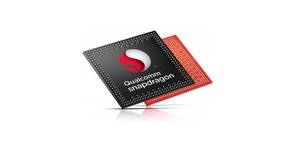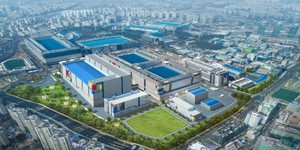Samsung's semiconductor arm, which overtook Intel as the world's largest chip manufacturer by revenue earlier this year, has announced the impending launch of an 11 nanometre (11nm) low-power process node - and claims to be on-track to launch a 7nm node in the second half of 2018.
As semiconductor companies continue to slavishly follow Moore's Law - the observation by Intel co-founder Gordon Moore that the number of components on a silicon chip tend to double every 18 months - the march to ever-smaller manufacturing process nodes has become increasingly difficult. Intel, in particular, has stumbled in its efforts to move to a 10nm process with the admtting in 2015 that it would delay the launch of the 10nm Cannon Lake parts in favour of parts built around the older 14nm process. In 2016 this became the official abandonment of the tick-tock development cycle which had previously seen the company move to a new process node every two years, alternating this advance with a new microarchitecture on the same process node for an annual release cycle, in favour of extended process node lifespans through a series of incremental microarchitecture enhancements.
While Intel started this year with the claim that Cannon Lake was back on track after its two-year delay, Samsung is increasing the pressure on the company by launching a competitive 11nm process node of its own - giving companies looking for foundry services the option of 11nm from Samsung on a guaranteed timescale or access to Intel's 10nm process node on an unknown schedule.
At the same time, Samsung claims to be on-schedule with its 7nm process node - a feature size achieved through the use of extreme ultraviolet (EUV) lithography, a more costly and complex lithography process than used for its 11nm node - which, if it maintains its adherence to schedule, would see Samsung offering 7nm ahead of Intel's shift from the still yet-to-launch 10nm node. 'Samsung has added the 11nm process to our roadmap to offer advanced options for various applications,' explains Ryan Lee, vice president and head of foundry marketing at Samsung Electronics. 'Through this, Samsung has completed a comprehensive process roadmap spanning from 14nm to 11nm, 10nm, 8nm, and 7nm in the next three years.'
According to Samsung, the 11nm FinFET process, dubbed 11 Low Power Plus (11LPP), will be available to customers in the first half of 2018 with the promise of a 15 percent boost to performance and 10 percent reduction in footprint compared to the same chip design implemented on the company's previous 14nm Low Power Plus (14LPP) node. The 7nm Low Power Plus (7LPP) with EUV, meanwhile, is scheduled to be ready for initial production runs in the second half of 2018.

MSI MPG Velox 100R Chassis Review
October 14 2021 | 15:04









Want to comment? Please log in.